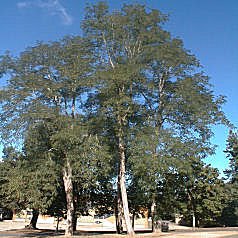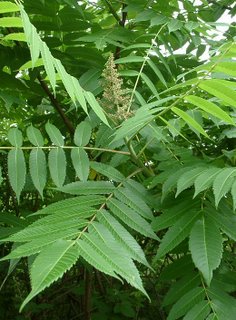What happens to trees as the earth gets hotter?
We see how the recent hot, dry summers in the south east of the U.K favours certain species of trees, ie; those from hotter, drier climes (suprise!)
Because we islanders love trees and can grow a wider range of plants than virtually any other country in the world, we are well placed to see which trees we should be planting in the future. Our native trees, and the fauna that depend on them, will be pushed north as tempratures rise. This may happen too quickly for some species, whilst others will move from the continent to colonize us. We have to adapt, just as we always have. The question is-how quickly will it happen. If it's too rapid, we're in trouble.
A few Trees That Thrive in Heat
The Honey Locust - from the eastern USA - will tolerate soils too dry, hot and poor for almost any other tree. It's feathery light green foliage comes late in the season, and flowers only infrequently. The wood is brittle and of no timber value.

Tree of heaven hails from northern China, and grows rapidly in London, though not as quickly as in Atlanta, USA where it grows like a weed. Loves a hot summer! The bark is a beautiful pewter-grey with shallow fissures marked with streaks of white.
N.B. It appears that Tree of Heaven SHOULD NOT BE PLANTED or encouraged. It is so successful that it is likely to 'push out' more desirable natives, with its habit of poisoning the soil around it, stopping native tree competeing with it.
Yet another reason to choose drought tolerant tree species extremely carefully! Ideally, they should feed wildlife as well as providing habitats. Ie; with pollen producing flowers.

Pride of India- Actually a Chinese tree- is better known as 'Golden rain tree' because of its great open panicles of yellow flowers which can ripen into bright pink fruits in autumn. These are dependent on a hot summer.


0 Comments:
Post a Comment
<< Home